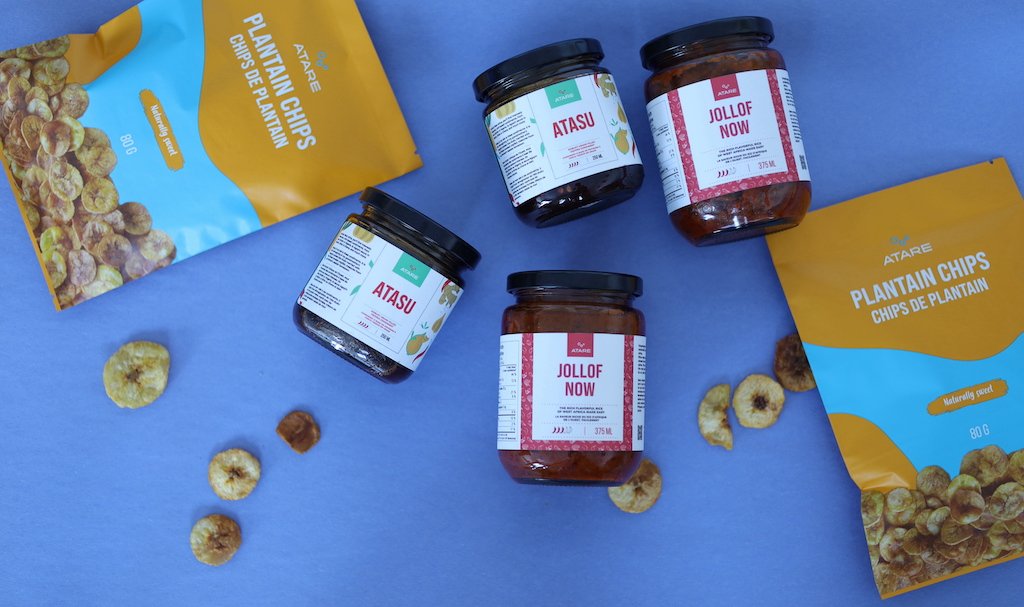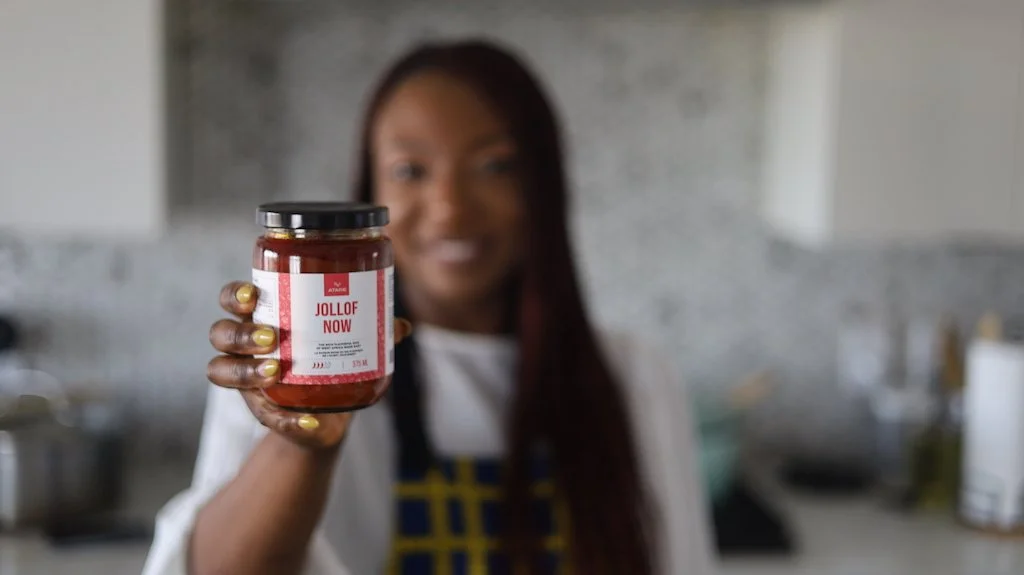Interview: Atare Foods CEO, Ronke Edoho Talks Jollof, Entrepreneurship & Spreading Joy Through Food
The way we cook is changing. There are times and meals that call for hours of stewing, roasting or brining; but most often, everyday cooking calls for something easy and uncomplicated because we live busy lives.
As a food content creator, this is something Ronke Edoho understands and has keyed into, with the creation of Atare Foods. The goal with this product line was to develop nutritious West African-inspired food products, that can rival any other brand on your pantry shelf.
“Atare was born out of my desire to reconnect with my West African culinary upbringing while residing in prairie Canada. The traditional West African food culture centres around nourishment, minimal processing, conservation through a holistic approach to ingredient use, and the communal experience of shared meals.”
In this interview, Ronke talks about our changing relationship with food, the move from influencing to entrepreneurship and the importance of keeping nutrition at the centre of it all.
How did you decide on the products to include in the debut Atare collection? What made these three right?
I wanted things that were easily integratable into our daily lives — a snack for when you are on the go, a ready-to-use Jollof paste to cut the everyday cooking process in half and of course, a pantry staple sauce that can elevate every dish from bland to amazing.
How long did the process of launching the business take – from conception to availability?
[Laughs] I doubt you really want to know. This has been a journey of years. I have had this dream for over 10 years and actively worked on the what and how; the difficult part has been answering the “when”. Food product development, especially in North America, is complex with loads of rules and regulations to navigate.
What parts of the business were you most reluctant to get involved in?
I am a dreamer and a doer, but marketing is something that doesn’t naturally come to me. I find putting myself out there extremely difficult. You know, that mentality of: I just want my work to do the talking for me! Marketing is what I find most difficult and I’m still praying to get someone on my team who is a shark marketer (hello, Universe!).
Did you expect the Atasu sauce to be the immediate bestseller?
To be honest, I expected every item on the launch list to be instant classics, just because of the sheer amount of work and testing that went into them. I expected JollofNow to be the pack leader though, so it was surprising to see Atasu getting more attention. But yes, the products are intentionally made, so I have no doubt that everyone that’s tried them will fall in love .
What makes the JollofNow paste a good substitute for a traditional made-from-scratch Jollof base?
The time-saving! Look, JollofNow uses the exact same process you would use in your kitchen — zero shortcuts. We go through the process of cutting the fresh produce, blending, frying and stewing them. It’s the perfect Jollof base made convenient for you. We do the hard work, so you don’t have to.
Imagine yourself as a busy professional not having to blend and boil pepper then fry onions, etc. before you can make perfect Jollof Rice; or imagine a busy mum who needs to make Jollof for school lunch after a busy day. If she can simply take five minutes to combine JollofNow with broth and rice and pop it in the oven, that’s it. 5 minutes of cooking, compared to 45, and with delicious results is a win-win.
In what ways do you feel our relationship with cooking (as Nigerians) has changed most in the last few years?
Honestly, I think post-COVID, people now fully understand that there is no reward for suffering. If there are things we can do to make life easier, we need to fully embrace them. We don’t have to do back-breaking work for food to be delicious — a lot more people realise this and are embracing this mentality, which is amazing to see.
“5 minutes of cooking, compared to 45, and with delicious results is a win-win.”
You mention “minimal processing” in describing the production of the range. How do you keep this to a minimum?
I think people who understand large-scale food production might get this more. In food processing, there’s often a push to not use fresh ingredients because they cost more, in material cost, and take a lot longer to cook. So for example, instead of cutting and frying onions, people use pre-fried onions. For me, this was unacceptable — it was so important to keep the process as authentic and as minimally processed as possible.
What else are you hoping to add to the Atare line?
A lot more. I want to take over your pantry with incredibly delicious, international-standard, well-made food products. I hope you’re all ready for this!
How do you balance creativity with meeting customer expectations and demands?
Open and honest conversations. There is no point in presenting elaborate solutions to a problem that does not exist, so we test group everything we are thinking of before putting money and time into development. I want to create things with people at the centre; things that will make our lives easier without compromising health or taste.
What guidance would you offer someone making the jump from content creation to entrepreneurship?
Do it! You only regret things you don’t attempt. But most importantly, be true to yourself and fully understand your why and your personal value offering.
Entrepreneurship is a long, and often lonely, road and most people only share the triumphs and not the many failures. Don’t think: A is doing it and succeeding, I will do it too; do it because you have something to offer.



